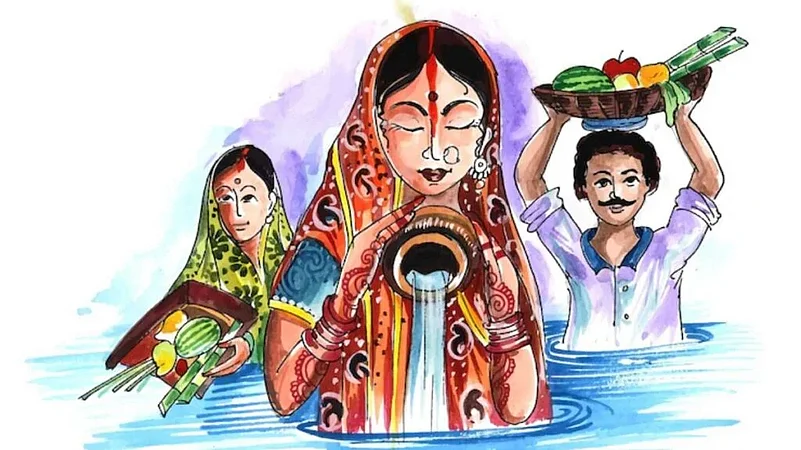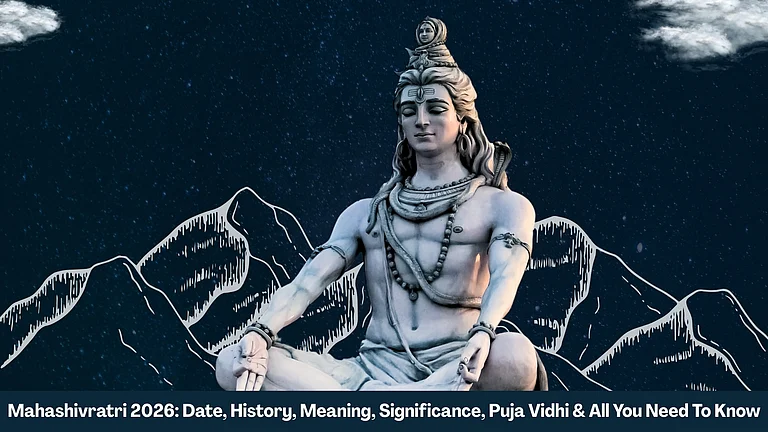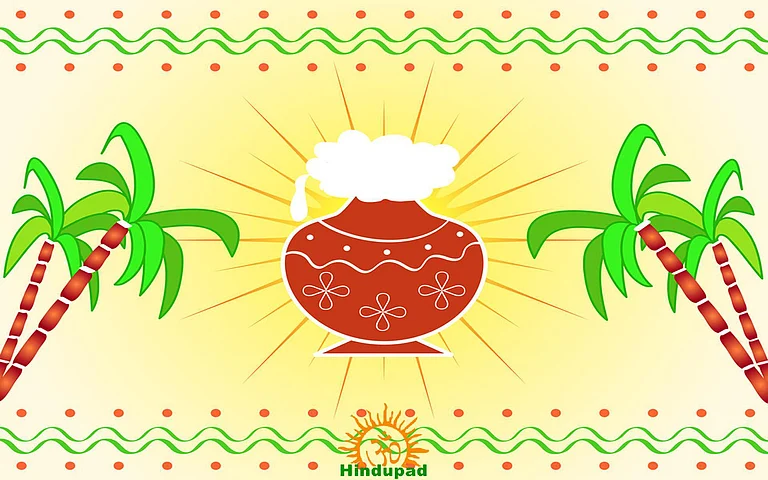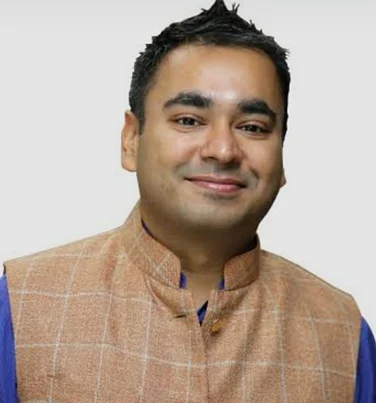Chhath, the most ancient and beloved festival will be celebrated from November 5, 2024, to November 8, 2024, with great pomp in India. The most beloved festival of Bihar, Jharkhand, and Uttar Pradesh is dedicated to Lord Sun and Chhathi Maiya. Apart from India, Nepal (Tarai region) also observes Chhath and seeks blessings from Chhathi Maiya for themselves and their families. Celebrated with immense devotion and fervor, the festival has deep-rooted cultural, religious, and historical significance, with legends and mythology adding to its grandeur. In this article, we will explore the legends associated with Chhath Puja, which give this festival its rich narrative and profound meaning.
Why Chhath is celebrated, know the legends of this sacred festival
Son of Sun God; The Legends of Karna

There are several stories linked to this festival, but do you know the son of the sun and Kunti Karna used to offer water (arghya) and prayer to lord sun every day? Yes, the most prominent legend linked to Chhath Puja is that of Karna, the tragic hero of the Mahabharata. Karna, born to Kunti and the Sun God (Surya), was an exceptional warrior and a man of extraordinary strength and generosity. According to the mythological tale, Karna was a dedicated worshipper of the Sun God. His unshakable faith and devotion to the Sun God are said to have bestowed upon him unparalleled powers and the invincibility that he displayed in the epic battle of Mahabharata. It is believed that the tradition of offering arghya to the setting and rising sun during Chhath Puja originates from Karna's practice of worship. The devout continue this tradition today, standing in rivers or water bodies to pay their respects to the Sun God during the festival.
When Lord Rama and his wife Sita kept fast for Chhathi Maiya

Another interesting story is from Ramayana when Lord Rama along and his wife Sita observed a fast after returning to Ayodhya following their 14-year exile and defeating Ravana. Lord Rama and Sita offered prayers to the Sun God and Chhathi Maiya and sought their blessing. The couple performed this ritual as a means of expressing gratitude to Surya for his blessings in their journey and for restoring peace in their lives. This prayer was followed by the offering of arghya to the setting sun on the sixth day of the Hindu month of Kartika, a practice that aligns with the rituals of Chhath Puja. This event is believed to have contributed to the spread of Chhath Puja in northern India, especially as an expression of gratitude, fulfillment of vows, and a prayer for well-being.
The Legends of Mahabharata (Draupadi and Pandavas)

Another significant legend associated with the Mahabharata is when Draupadi and the Pandavas did Chhath puja after following all the sacred rituals. It is said that during their exile, Draupadi, the wife of the five Pandavas, observed fasts and performed worship to the Sun God with utmost devotion. On the advice of sage Dhaumya, Draupadi undertook the Chhath Puja rituals to seek blessings for the return of their lost kingdom and to secure their family's well-being. Her prayers to Surya were answered, and the Pandavas regained their kingdom, marking their successful return to Hastinapur after exile. This legend underscores the belief that Chhath Puja can fulfill wishes and bring relief to those who are in distress, highlighting the power of devotion to the Sun God.
The Legends of Priests

Chhath Puja in ancient times was reportedly performed by brahmins and rishis (priests and sages) who would engage in rigorous fasting and austere practices to attain spiritual enlightenment and physical well-being. The rigorous discipline required to perform Chhath rituals, such as standing in water for long periods and abstaining from food and water, was believed to purify the body and mind. Over time, this practice evolved into a community-based festival, wherein common people also participated in these rigorous rituals, seeking blessings from the Sun God for good health, prosperity, and protection from diseases.
Chhath puja is more than just a festival; it is a tribute to the life-giving powers of the Sun and an expression of gratitude for the blessings of nature. The legends associated with Chhath Puja, whether from the Mahabharata or the Ramayana, highlight the significance of devotion, purity, and the deep connection between humans and the divine forces of nature. The legends of Karna, Draupadi, and Lord Rama, etc continue to inspire devotees to follow this ancient tradition with reverence and dedication. Today, Chhath Puja remains a powerful symbol of faith, community, and the enduring bond between humanity and the cosmos.



























